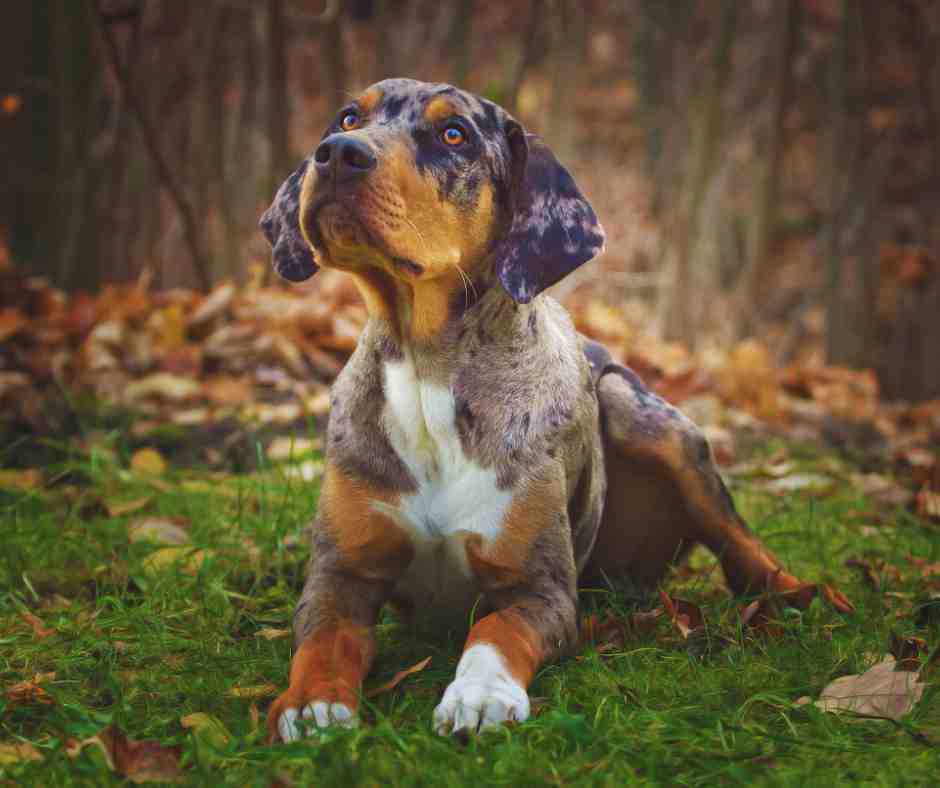The Louisiana Catahoula Leopard Dog is a unique and versatile breed known for its striking coat and intelligence. This ultimate guide provides valuable insights into their traits, training techniques, and essential care tips. Whether you're a first-time owner or a seasoned dog lover, this book is your go-to resource for understanding and raising this remarkable breed.
Exploring the Unique Characteristics of Wolfdogs: A Closer Look at the Wolf-Dog Hybrid
Introduction: Understanding the Fascination with Wolfdogs
Wolfdogs, also known as wolf-dog hybrids, have long captivated the imagination of humans. These unique creatures are a cross between a domestic dog and a wolf, resulting in a hybrid with a combination of wolf and dog traits. The allure of wolfdogs lies in their wild and mysterious nature, as well as their striking physical appearance. In this article, we will explore the origins, genetic makeup, physical characteristics, behavioral traits, social dynamics, training challenges, diet and exercise needs, legal considerations, health concerns, and responsible ownership of wolfdogs.
The Origins of Wolfdogs: A Brief History
The history of wolfdogs dates back thousands of years. Ancient civilizations, such as the Egyptians and the Native Americans, revered the wolf for its strength, intelligence, and loyalty. Over time, humans began to crossbreed wolves with domestic dogs to harness the wolf’s desirable traits while maintaining the dog’s domestication. This practice continued throughout history, with notable examples including the breeding of Alaskan Malamutes and Siberian Huskies with wolves to create sled dogs with enhanced endurance and resilience.
The Genetic Makeup of Wolfdogs: Wolf vs. Dog Traits
Wolfdogs inherit a unique combination of traits from both wolves and dogs. While the exact genetic makeup can vary depending on the specific wolf and dog breeds involved, wolfdogs typically exhibit physical characteristics such as a wolf-like appearance, including a thick coat, erect ears, and a bushy tail. They also possess behavioral traits such as heightened senses, strong prey drive, and a natural inclination for hunting and exploring.
Physical Characteristics: How Wolfdogs Differ from Domestic Dogs
One of the most striking features of wolfdogs is their physical appearance. They often have a wolf-like face with almond-shaped eyes and a strong, muscular build. Their coat can range from a variety of colors, including gray, black, and white, and is typically thicker and denser than that of a domestic dog. Wolfdogs also have longer legs and a more elongated body compared to most domestic breeds.
Behavioral Traits: Unraveling the Wolf-Dog Hybrid’s Complex Nature
Wolfdogs possess a complex blend of behaviors inherited from both wolves and dogs. They exhibit a strong prey drive, which can make them prone to chasing small animals. Additionally, they have a heightened sense of smell and hearing, making them excellent trackers. Wolfdogs are also known for their intelligence and problem-solving abilities, which can make them challenging to train. It is important to note that their behavior can vary greatly depending on the individual animal’s genetic makeup and upbringing.
Social Dynamics: Pack Mentality and Hierarchies in Wolfdogs
Wolves are highly social animals that live in packs with a well-defined hierarchy. This pack mentality is also present in wolfdogs, and they often exhibit a strong need for social interaction and a desire to establish their place within a group. It is crucial for wolfdog owners to understand and respect this social structure, providing their pets with appropriate socialization and leadership to prevent behavioral issues.
Training Challenges: Navigating the Wild Side of Wolfdogs
Training a wolfdog can be a unique and challenging experience. Their strong prey drive and independent nature can make them less responsive to traditional training methods. Positive reinforcement techniques, such as rewards-based training, are often more effective with wolfdogs. Consistency, patience, and understanding their natural instincts are key to successfully training a wolfdog.
Diet and Exercise: Meeting the Unique Needs of Wolfdogs
Wolfdogs have specific dietary and exercise requirements that differ from those of domestic dogs. Their diet should consist of high-quality, protein-rich food, similar to what wolves consume in the wild. Additionally, wolfdogs require ample exercise to satisfy their natural instincts and prevent boredom. Regular long walks, runs, and mental stimulation activities are essential for their physical and mental well-being.
Legal Considerations: Regulations and Ownership of Wolfdogs
Owning a wolfdog comes with legal considerations that vary depending on the jurisdiction. Some countries and states have strict regulations regarding the ownership of wolfdogs due to their wild nature and potential for aggression. It is crucial for potential owners to research and understand the laws and regulations in their area before considering bringing a wolfdog into their home.
Health Concerns: Common Issues and Care for Wolfdogs
Wolfdogs are generally healthy animals, but they can be prone to certain health issues. These may include hip dysplasia, allergies, and certain genetic conditions. Regular veterinary check-ups, a balanced diet, and proper exercise are essential for maintaining the health and well-being of a wolfdog. It is also important to provide them with a safe and secure environment to prevent escape and potential harm.
Living with Wolfdogs: Tips for Responsible Ownership
Responsible ownership of a wolfdog requires a deep understanding of their unique needs and behaviors. Potential owners should thoroughly research the breed and consider their lifestyle, living situation, and commitment to training and socialization. Providing a wolfdog with a suitable environment, proper care, and ongoing education is crucial for ensuring a happy and healthy life for both the animal and its human companions.
Conclusion: Embracing the Beauty and Complexity of Wolfdogs
Wolfdogs are fascinating creatures that embody the beauty and complexity of the natural world. Their unique genetic makeup, physical characteristics, and behavioral traits make them a captivating companion for those who are willing to invest the time, effort, and resources required to meet their specific needs. By understanding and embracing the wild side of wolfdogs, responsible owners can forge a deep and rewarding bond with these extraordinary animals.



